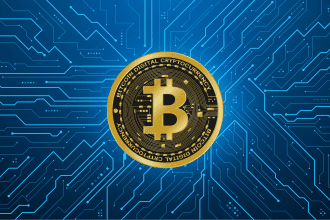Samourai Wallet Privacy Case: Developer Jailed for Code
The crypto community has fought a lot of lawsuits, but few have hit the core so hard as the arrest and conviction of a Samourai Wallet co-founder.Of course, such incidents mostly involve rug pulls and hacks. But this was one of those rare times when a developer was imprisoned not for crimes he had committed in the past, but rather because he had written code that made Bitcoin transactions less easily traceable.In 2024, the U.S. government accused Samourai and its co-founders of helping billions of dollars in money laundering through privacy tools. DoJ said they were not just software creators; they were operators of financial privacy which hid crime.On the face of things, the fate of a single developer doesn’t seem that important.But really this is a question of crypto ethics: Are we coming to see privacy itself as criminal activity?Regulatory authorities claim that instruments designed to hide the back-and-forth in transactions will be regulated by finance law, particularly when these are involved with crime proceeds.
But the crypto community’s stand is to compare this practice as absurd as going after a locksmith because somebody used his safe for the proceeds of a crime.When it comes to Samourai, users, programmers and regulators are all left to think about at what point does the freedom of code stop and the responsibilities that stem from finance start.It wasn’t just another Bitcoin app; it was created with privacy at its centre. Journalists, activists and privacy advocates used it as a safety shield. Its features included coin mixing, transaction obfuscation and blocking the chain linkages.execBut because this was Samourai’s goal, it left the privacy shield trying to tread water, for example when the noise in U.S. grew louder with David Marcus’s questioning of how Tumbledown Cash and Bitcoin Fog were treated with increased pressure.
Whether Privacy became merely a matter of principle to argue.
In 2024, both the CEO, Keonne Rodriguez, and CTO, William Lonergan Hill were arrested by federal officials.They were charged with running an unlicensed money-transmission business and conspiring to launder the gains from this.Illegal dinner permits by February 2002 alone had pulled as many as whips $552.3 million into Hong Kong registers. But the evidence indicates that it was often and everywhere those working outside legal channels who benefited most. According to prosecutors, this wallet was responsible for processing over $10 billion in transactions. At some point however another exporter with no location was identified for US$100 million and the sum was sent off with dark magics onto the wrong parts of the web where it will now lie dormant until civil authorities get round to checking up on it!
This open-source privacy project gradually evolved into a major money laundering operation. By 2025, one co-founder had been sentenced to five years in prison, which clearly showed that from the standpoint of regulators, some of these privacy tools are also financial services that operate outside legal parameters. According to the U.S. Department of Justice, the Samourai team not only published software then turned their backs on it and walked away.They worked hard to produce services for customers in addition to making the associated tools widely available but such things are seen as tools for “eluding police.” In addition, they accrued fees from their users. In the government’s view, this is no longer an issue for the First Amendment or open-source software; it’s about running a business that helps people hide large amounts of money.
This specific point, between coding and actual use, would become the dividing line between U.S. regulators and the crypto community. From the crypto point of view, code is speech. Programmers see open-source software as artistic expression which should be protected. But according to the government, if a company provides technological infrastructure that moves or hides money it functions like a payment processor.
For Samourai’s developers, this means sum up tens of thousands dollars it wasn’t just passive software suppliers. The system designed by Samourai, on the other hand, is a profit-oriented provider for transactions under wraps. However, the real argument here is ideologically based. Is it really possible that people who can not only compile code but have also built an application penerating system are unable to use this skills and in fact willing to make a profit from any illict outcome? Samourai is a combination of tools that uses Bitcoin to confuse the origin of a transaction.
This is rather like CoinJoin, CoinJoin is putting many users’ coins together. Then it mixes and mingles with others ‘coins, in order that the tracks of everyone become jumbled up. It even has features such as “Whirlpool” (on Tor these are called “tumblers”) and divisible outputs- these can give better protection against blockchain descendents who try to implement a tracker for all usage trails by every user. On the surface, nothing about this is illegal. Indeed, privacy is a genuine need. But ransomware groups and dark-market sellers also find these facilities very profitable. Did you then go backwards to those days of piracy and it would be no concern for the nation one way or another? According to the government, Samourai was not solely providing a cover for privacy protection; it was reaping a tidy sum from such obfuscation of funds * operations. Unlike Tornado Cash, which is based on Ethereum and is fully decentralised, Samourai Wallet belongs to the world of Bitcoin. It still maintained some back-end servers, and certain parts were centralized. This was essential. Tornado’s case instead turned on the question of whether decentralized code could be held accountable. With Samoura’s feature on human profit.
The government not only seized, but also permanently closed operations completely it marked the first time in history where a major Bitcoin privacy wallet had been shut down through criminal proceedings. Samourai had been operating independently minded cultism specifically tailored to privacy enthusiasts from 2015 to the mouldy year of 2023.
Until 2024, generally speaking it was a place of safety. The bull run enjoyed by digital currency from the summer of 2016 through to the arrest of Nashain at end 2017 was interrupted for Samourai, the retention and mixing platform of digital currencies on June 23,2021 with an arrest by US Prosecutors yielding search warrants. The message was very clear: “The code does not carry out money laundering of any kind, it is itself involved.” When his employer went to court a year later and pleaded guilty, the verdict confirmed this was a reality not just in my mind. That is, a start. The message was unmistakable: “Code is not off the hook if it launders criminal money.
Whether cryptocurrencies provide privacy and security has always been a legal gray area. In the end, it’s not, but the devil lies in details. Open source, non-custodial tools that are decentralized are less risky. But when a team runs servers, charges fees and plays privacy as a way to evade law, it’s just asking for trouble from the regulators. The precedent set by the Samourai case means that tools to enhance privacy in the US are now viewed against what they end up actually doing and producing. This has cast a pall over the entire developer community. Open source coders are now asking themselves whether it would be better to confine themselves to topologies that avoid traffic from the US or to go all the way further, including geo-blocking user data. Now people who used to think “code is speech” are beginning to wonder if this is true only up to a certain point. For a typical user, the future looks quite clear.
Privacy wallet might turn rare, or cease, as decentralized as this comes with co-ordination problems (or worse, there’s also an inconvenience factor) and ever so much logistic software tool closer to immune from regulators won’t be touched by the makers of those tools. Of course, an even bigger philosophical question is whether there can be a place in the world for both private money and regulated money? For users, the answer is clear whether they use it or sell their own data online, the government typically wants transparency while citizens request autonomy. The Samourai case illustrates all just how much privacy is not only good for users but also creates endless difficulties as law enforcement tries to retrace. People are slowly changing from building systems that can arrested: as had have been necessary under such a status quo regime, everybody saw it happen.
For Samourai Wallet, that turns out to be attitude toward the future-drawing a thick line across its own history.From now on to indulge in the online-cowboy ethic, which for decades has been “post first, ask later” and a trend through all fields expansion policy will have no future.The last gasp of carrying a case by straight coding will not do anymore. You must also consider how it runs, who uses what you wrote and whether or not it stands up in court any trial involving patents for practices within teams Privacy is not dead, but it is changing very quickly.
Those who will determine its fate in the future however must be more than just hot air energizing them because they will also have need for a legal strategy.






















